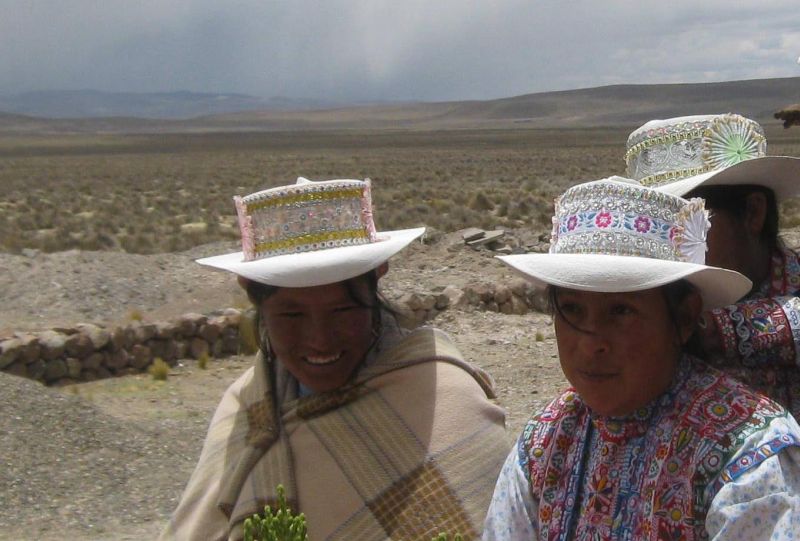Future ICSOs
Designing the change agenda

The conditions under which most ICSOs work are changing fast. Persistent poverty and rising inequality are triggering conflicts, a fast growing middle class is increasing the pressure on scarce resources, climate change is progressing unabated, and biodiversity is under threat. Furthermore, shrinking political space limits ICSOs’ room for action and mobilisation, and the internet is compromising traditional forms of communication. Another challenge lies in the financial basis of ICSOs. Supporters are ageing, and the younger generation has new expectations.
Instinctively, ICSOs often perceive these changes as threats. Indeed, if an ICSO does not adapt, its very existence may be threatened. At the same time, growing challenges such as the overstepping of our planetary boundaries and violations of human rights more than ever require strong engagement from ICSOs. Neither governments nor businesses will speak out for – or act in solidarity with – the people most affected by war, droughts or poverty the way ICSOs do. ICSOs have a unique responsibility and unmatched experience in organising meaningful campaigns and delivering life-changing programmes.
ICSOs generally have very powerful visions: to end poverty, to protect the environment, to save children or to end the discrimination of marginalised groups. Most of their activities, however, are rather small-scale initiatives. A holistic approach is necessary. For example, climate change is already affecting and sometimes even undermining ICSO visions, yet many organisations’ activities do not systematically take this issue into account.
The new agenda of the Sustainable Development Goals (SDGs) may not address all the aspects ICSOs were advocating for, but they do spell out an ambitious agenda that aims to link some of the most important issues to each other. One example is the goal of an inclusive economic development in all parts of the world that takes into account scarce resources and the environment.
At the same time, many governments are increasingly restricting and controlling civil-society action, limiting the space for advocacy, mobilisation and programme implementation. The threat to democratic, people-centred and sustainable civil-society work affects all CSOs around the world and requires collective answers.
Many of the questions at stake cannot be decided by the heads of CSOs alone. Staff, activists, volunteers and donors must work together to develop ideas and implement the changes that are needed. Are we ready for personal sacrifices in order to be more environmentally friendly? Are we willing to fundamentally change relationships with partners in the global south? Can we accept changes to how we work? Do we take the risk to challenge our donors about their lifestyles? And are we willing to make room for new forms of activism and virtual engagement that could mobilise people?
These are just some of the questions many ICSOs are tackling, and there are no one-size-fits-all answers. But we can share the experiences of individual change processes and collectively think about the future of the entire sector.
The International Civil Society Centre invites all CSO staff, activists and supporters to discuss the future of ICSOs and to develop creative approaches on its online discussion platform “Disrupt&Innovate”. Based on the book by the Centre’s Executive Director Burkhard Gnärig, “The hedgehog and the beetle – Disruption and innovation in the civil society sector”, the platform aims to support international as well as national CSOs – whether they are big or small, well-established or new – in their search for solutions.
Strategic issues
Based on the Centre’s work with many of the largest ICSOs over several years, we have identified issues that are relevant for a broad range of organisations, including smaller and less established CSOs:
- Alliances: No organisation or sector can eradicate poverty or ensure education for all children on its own. How do we form effective alliances within the civil society sector but also with frontrunners in governments and private-sector businesses to look for solutions together?
- Culture: New strategies or more flexible decision-making structures often require fundamental changes to the way organisations work. How do we create an organisational culture that embraces entrepreneur-like approaches, including innovation and change as part of the daily work?
- Transparency: Increasing scrutiny from the public and donors, in combination with digital technologies, put new demands on ICSOs’ own accountability and transparency. How can we rethink transparency to use it both as a tool for accountability towards the outside world and for our own continuous learning and improvement?
- Business models: Changing fundraising patterns and virtual campaigning opportunities are putting into question the traditional business models of many ICSOs that deliver humanitarian or other services to people in need. How do we adapt and diversify our business models to replace or complement our activities without losing sight of our visions and missions?
- Identity: The global power shift questions the patterns of donors in the global north transferring funds and knowledge to the global south. We have to reconsider the values that guide our work: How can we empower beneficiaries and contribute to a more equitable world?
- Governance: Increasingly fast and complex challenges require fast and flexible decision-making. How do we design appropriate governance systems for our organisations? These should allow for participation and at the same time enable us to move quickly and boldly when needed.
No one alone can find the answers to these and many other questions that will keep our sector busy over the coming years. That is why the “Disrupt&Innovate” platform offers an open space for sector-wide debate, exchange and mutual learning.
During the first months of the online discussion, we saw a lot of engagement from colleagues commenting on the way many CSOs work today. With our campaign #BeTheHedgehog, we encouraged users to look for new answers to global challenges. When the community was asked to nominate innovators, we learned about partnerships with companies to fight Ebola, new ways to engage youth in organisational governance, and how skateboarding can make a difference in children’s education. Some participants shared their individual organisational difficulties and how they address them, looking for feedback or advice from others. Guest blogs by leaders from organisations such as Oxfam, 350.org, Transparency International and CIVICUS brought up specific questions about accountability, corruption, climate change or the defence of civic space.
In the months and years to come, we hope to build a community that produces ideas and innovations that will drive the sector forward. Our aim is to develop a change agenda for ICSOs. In addition to our online discussion, the Centre will bring together change-makers for a workshop in October called “Managing Disruption”.
Even the most well-designed change process is likely to be outdated by the time it is fully implemented. Organisations that embrace change as part of their daily work and constantly learn from their experiences are the most likely to not only survive but make a real difference to people’s lives.
Helene Wolf is the Deputy Executive Director of the International Civil Society Centre in Berlin.
hwolf@icscentre.org
Åsa Månsson is the Director of Development at the International Civil Society Centre. She leads the Disrupt&Innovate project.
amansson@icscentre.org
Links:
Disrupt&Innovate:
http://www.disrupt-and-innovate.org
International Civil Society Centre:
http://www.icscentre.org
Twitter: @CSODisruption












